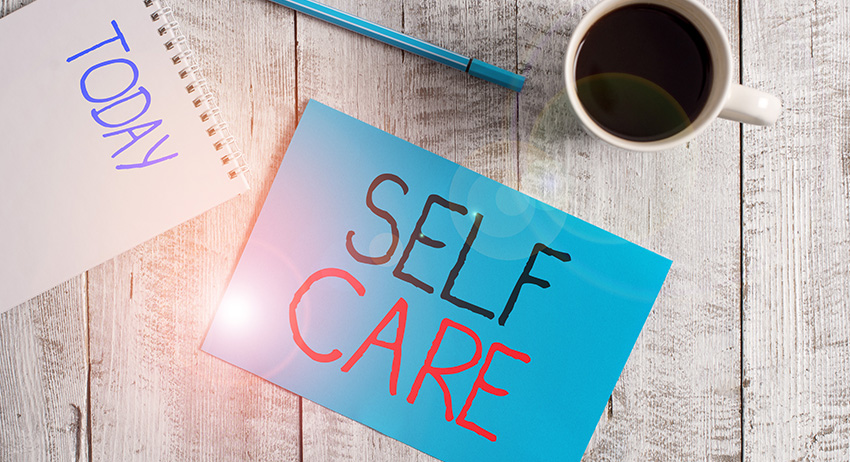



Nowadays, the term “self-care” is a buzzword in popular culture, especially as retailers and other businesses seek to capitalize on the trend. From ads for bubble bath elixirs to “wine-o’clock” memes to mindfulness apps, the world of media is filled with mixed messages about the best ways to take care of ourselves.
In fact, sometimes it seems like the only thing these so-called “wellness” products have in common is that they cost us more money!
With all the noise and pressure surrounding how to practice self-care, it can contribute to, rather than relieve, the many stressors we face in our everyday lives—and there are plenty. A 2022 survey by the American Psychological Association showed that an increasing number of Americans are concerned about issues ranging from the pandemic to politics to paying the bills.
The study also found that parents of children under 18 are especially stressed: 75 percent of parents said they could have used more emotional support than they received, while 32 percent reported receiving treatment from a mental health professional. At the Kids First Center, we witness firsthand how the challenges and stressors of co-parenting are complicated even further by the event of a divorce or separation.
So, what is self-care, then, and how does it relate to the many demands that co-parenting can place on our lives?
Rather than an item we buy or an app we download, self-care encompasses the conscious and unconscious choices we make every day that impact our mental, physical, and spiritual selves and contribute to our overall health.
As parents, we make these decisions not as single-minded individuals, but with our kids and co-parenting partners in mind. There is a constant balancing act between preserving our own sense of well-being and that of our family, with the recognition that familial relationships are a constellation, made up of bidirectional forces of energy that both contribute to and take from our resources, tangible, and intangible alike.
While there is no mathematical equation or instruction manual for how to navigate these relationships while practicing self-care, it can help to approach the challenge by considering our multiple roles—parent, partner, co-parenting partner, worker, friend, etc.—through this dynamic framework.
Self-care starts with taking an inventory of the relationships in our lives, and identifying the purpose, root, or motivation behind each one. Some relationships are straight forward: we are parents to our children because we love them, and we both give and take directly from them-in a myriad of ways.
Other relationships, such as those with our CPP, are more complicated. We might feel as though we give more than we take from this person, or that the only reason we communicate with them at all is for “the sake of the kids,” in whom we have a shared interest.
By simply identifying and naming the relationships in our lives and mapping out the supply and demand of resources, we can begin to get a clearer picture of how to address these areas of stress and invest more of our time cultivating positive relationships that strengthen our constellation as whole.
If this process of reflection sounds intimidating, know that it can be as simple as drawing a picture. Ecomaps are visual diagrams of our social and personal relationships, and a tool we frequently use in the field of social work to help clients begin to reflect on the nature of the relationships in their lives. Click on the hyperlink above to watch a short video on how to create your own ecomap and consider enlisting your kids to do the same. What you create is one tool in your self-care “toolbox” that will serve as a guide to making smarter, healthier, and more efficient choices around relationships that impact your mental, physical, and spiritual selves.
______________
Emily Wasserman is a Program Assistant at Kids First Center, as well as a full-time student at the University of New England pursuing her master’s degree in social work.